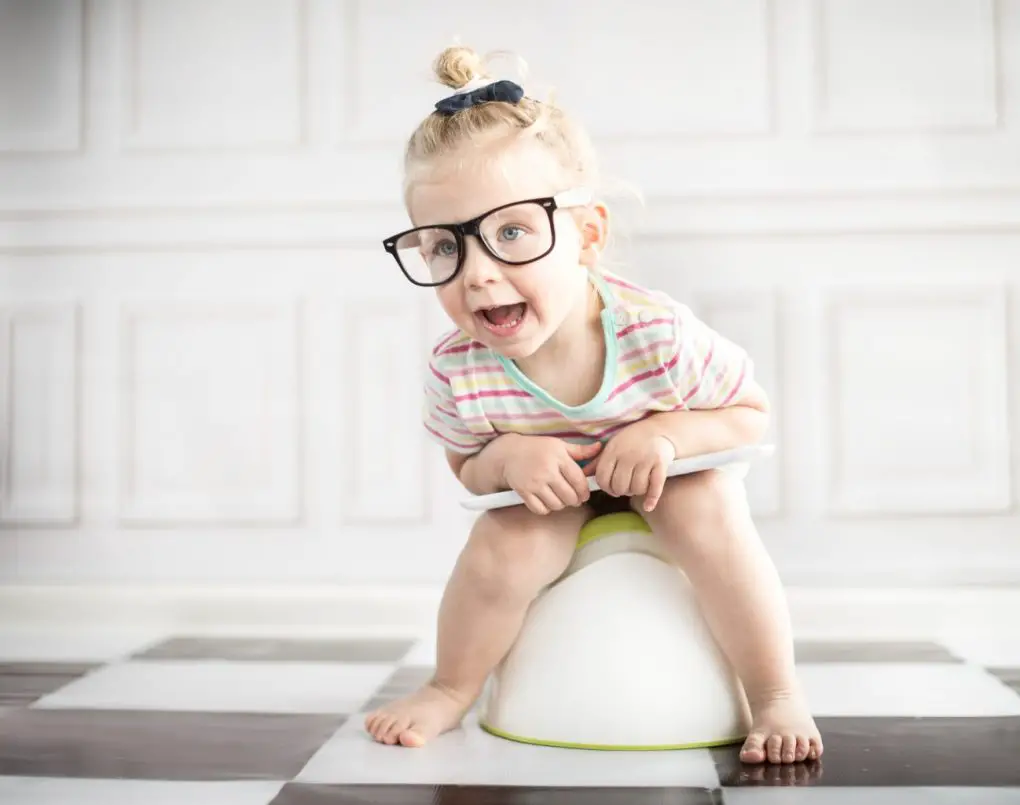Watching your child go through different stages as they grow up is fascinating, but can be a little bit tiring.
Witnessing how they grew from being a little baby you used to hold in your arms to a toddler jumping and running around the house is beautiful.
They are now able to eat alone, play by themselves and come to you when they are crying. However, there is still one challenge that most mums struggle with: potty training.
Your house is still flooded with diapers. You keep some in your purse, in your baby’s crib, in the bathroom, and even in the car. You will never know when an emergency would come!
This pushes you to question whether or not it is time for your little one to potty train, and what are the signs that your toddler is ready.
There’s an ongoing debate concerning the ideal age for you to start potty training your baby. Opinions differ, and the age varies from a toddler to another.
Although you might be hearing stories of other babies who were successfully potty trained at 18 months, we should all agree that the right moment is when your kid is actually prepared for it.
Signs It’s Time To Start Potty Train
Before introducing you to the signs for potty training, we believe that every mother must remember not to force her baby into it.
Just like your toddler learned to walk, talk, and eat at a different pace than other kids, the same applies when it comes to potty training. Because some kids succeeded at it at an earlier age does not mean that your baby is slow.
The only recommendation we have concerning the timing is to choose a period where there are no changes going on in your life.
For example, it is best to avoid potty training if you are moving out of the house or traveling. It will not just distract you from taking care of your kid during one of the times that need your focus the most, but will also make it harder for you to stay on top of the other responsibilities you may have.
Your baby will showcase many signs that will tell you it is time to give up on diapers and move to use a potty.
These signs can be a combination of physical, cognitive and behavioral hints.
According to the National Health Service, UK., among these signs is when your toddler is gaining more bladder control. (1)
Other than that, your kid would show less interest in using nappies, as they will realize that they are meant to use the potty, the Department of Health, Government of Western Australia explained. (2)
It is also essential that they are able to understand your instructions and follow them independently, like pulling their pants up and down for instance.
In case you are still confused about the signs, ask yourself the following questions :
- Can your child walk to and sit on a toilet?
- Can your child pull down his or her pants and pull them up again?
- Can your child stay dry for up to two hours?
- Can your child follow basic directions?
- Can your child communicate when needs to go?
- Does your child seem interested in using the toilet?
If you notice that most of your answers are positive, your child is probably ready for potty. (3)
Which Method To Adopt?
There are many strategies to follow when it comes to potty training, such as the three-day method, positive reinforcements, and gradual training. However, the U.S National Institutes of Health confirms that « there is no level-1 evidence to prove which method is best »since it all depends on your child. (4)
Whatever the path you go for is, we advise you to include positive reinforcement in it.
Positive reinforcement can simply be defined by rewarding your child for a specific action, either through praising them or offering them something they love and enjoy.
This method is known to help you implement positive behavior and increase your toddler’s discipline towards potty training, as they will be motivated to get the reward whenever your instructions are applied.
A Thought For The Special Ones
Potty training is challenging but can be even harder if your toddler is diagnosed with disabilities or autism.
If you are a mum with a special child, you need to know that you are not forgotten. We admire the efforts it takes to raise your baby, and are here to offer as much assistance as we can.
Regarding potty training for autistic toddlers, the U.S National Health Institutes announced that research and several case studies were established to offer more guidance to parents of kids with special needs. (5)
Word From Us
Generally, it takes a lot of patience to successfully train your kid for potty or toilet. It is a new experience for them. Hence, they might show some discomfort once you get started.
You want this experience to be a positive one, for you and your child. For this reason, we insist that you gather more patience when dealing with your little one.
It can be frustrating at times, especially with the accidents that can potentially happen. Thus, you need to implement some elements for fun to make the training go smoother for both of you.
Besides the rewards, be sure to give your kid some positive potty talk to keep them motivated, and praise the efforts they are making.
Don’t set too high expectations from your kid, as this will only add more pressure on both of you. Remember that there is no deadline for potty training. It’s a process that requires time following your child’s pace.

Leave a Reply